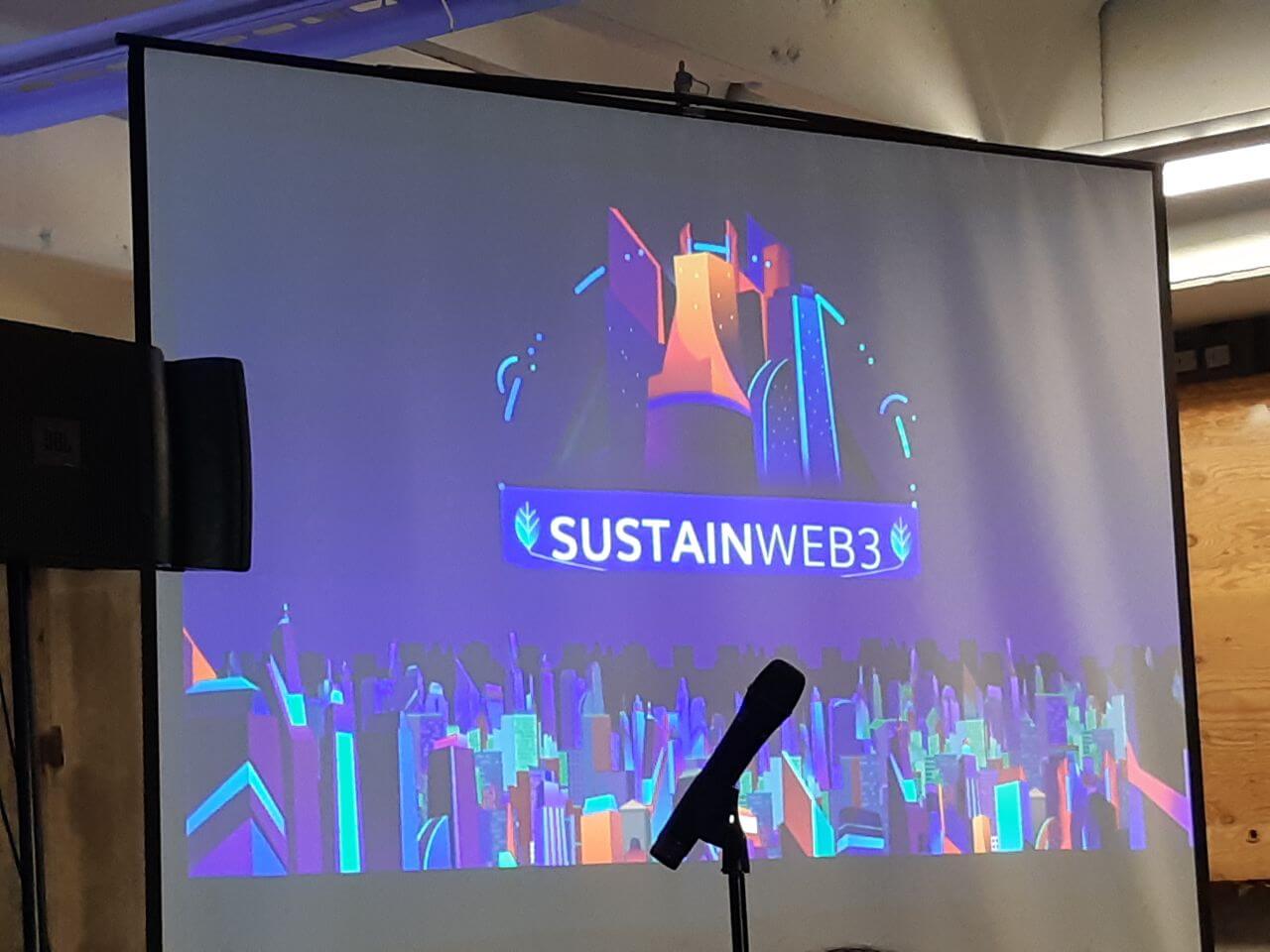
Highlights of SustainWeb3 Event in Denver Colorado
by Yahsin Huang | February 29, 2020 | Category: Diode
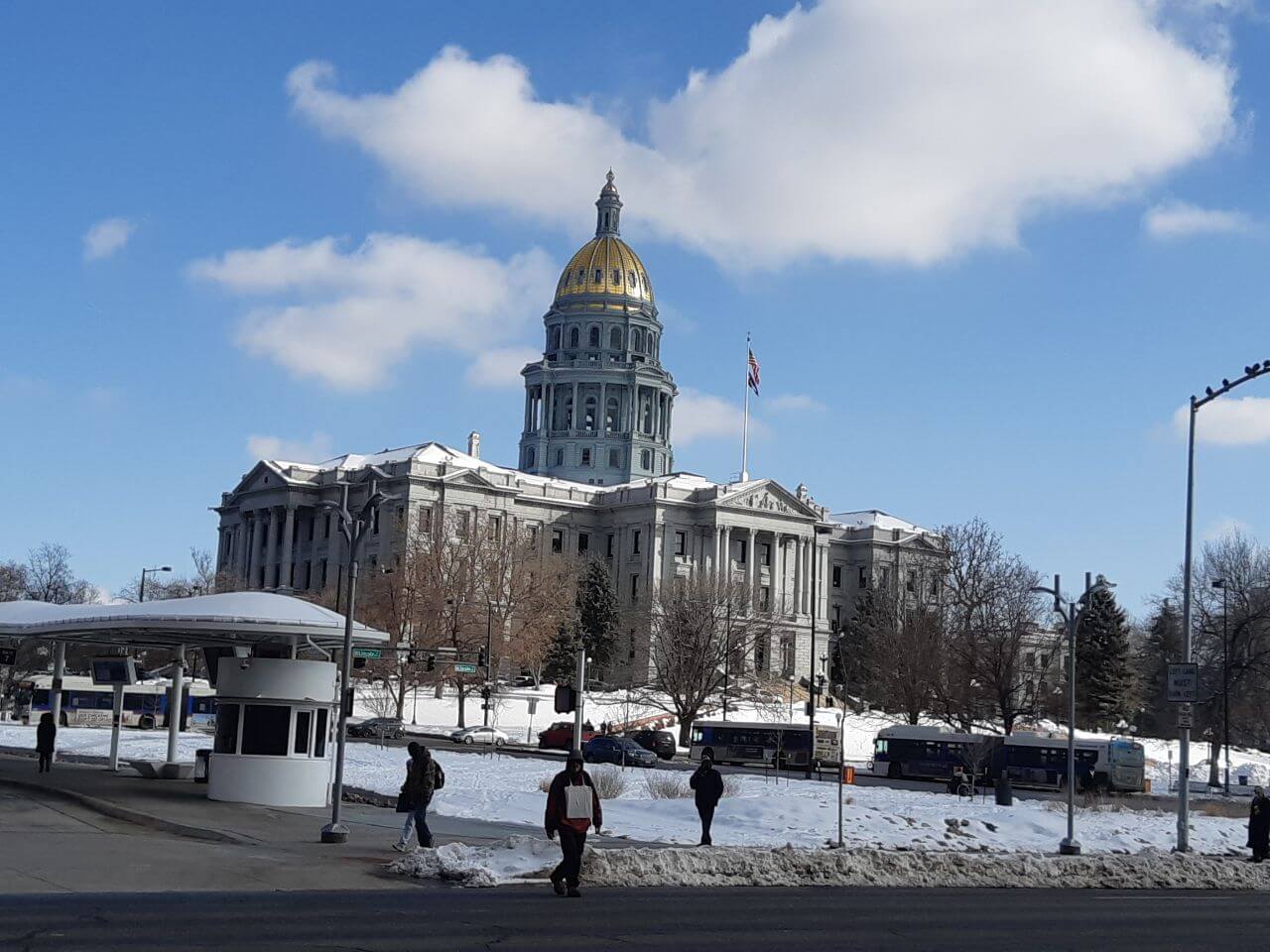
On Thursday, February 13 SustainWeb3 event took place in Denver, Colorado. Organized by the Gitcoin team, the one-day event drew hundreds of researchers, developers, and community leaders at Denver’s Sports Castle (same venue as EthDenver). Our team was particularly inspired by the talks of Vitalik Buterin (Ethereum Foundation) and Nathan Schneider (the University of Colorado Boulder). Below are some highlights from the event, which was moderated by Abbey Titcomb.
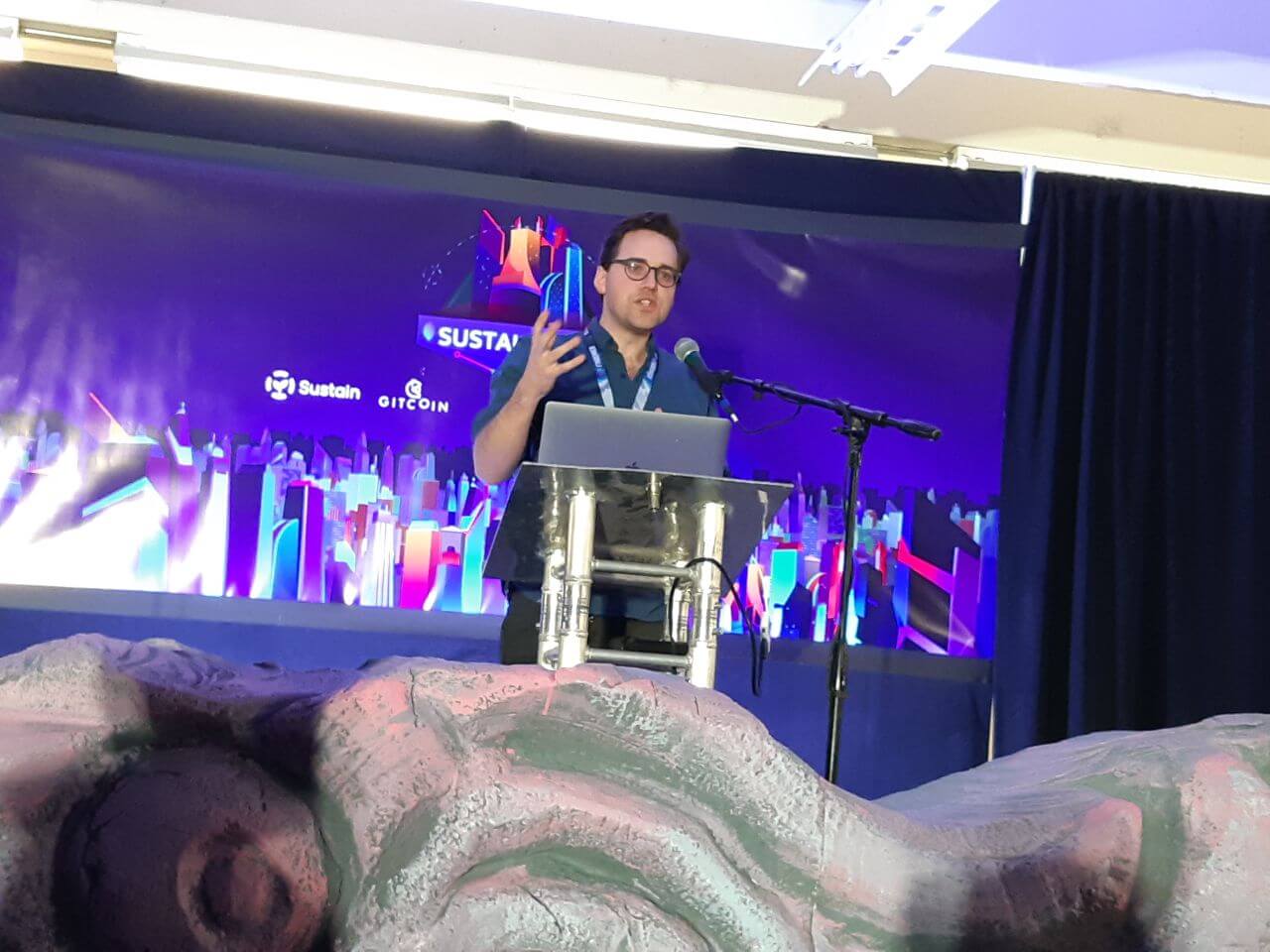
Nathan Schneider, an assistant professor of Media Studies at the University of Colorado Boulder, gave a speech entitled “Startups Need a New Option: Exit to Community” at the event. Last September, Nathan published a story on HackerNoon under the same title. Watch his presentation on YouTube: https://youtu.be/okaLkoCRA9k
In his presentation, Nathan talked about the idea of instead of IPOs, exiting to community is the modern exit. In exit to community, the company would transition from investor ownership to ownership by the people who rely on it most.
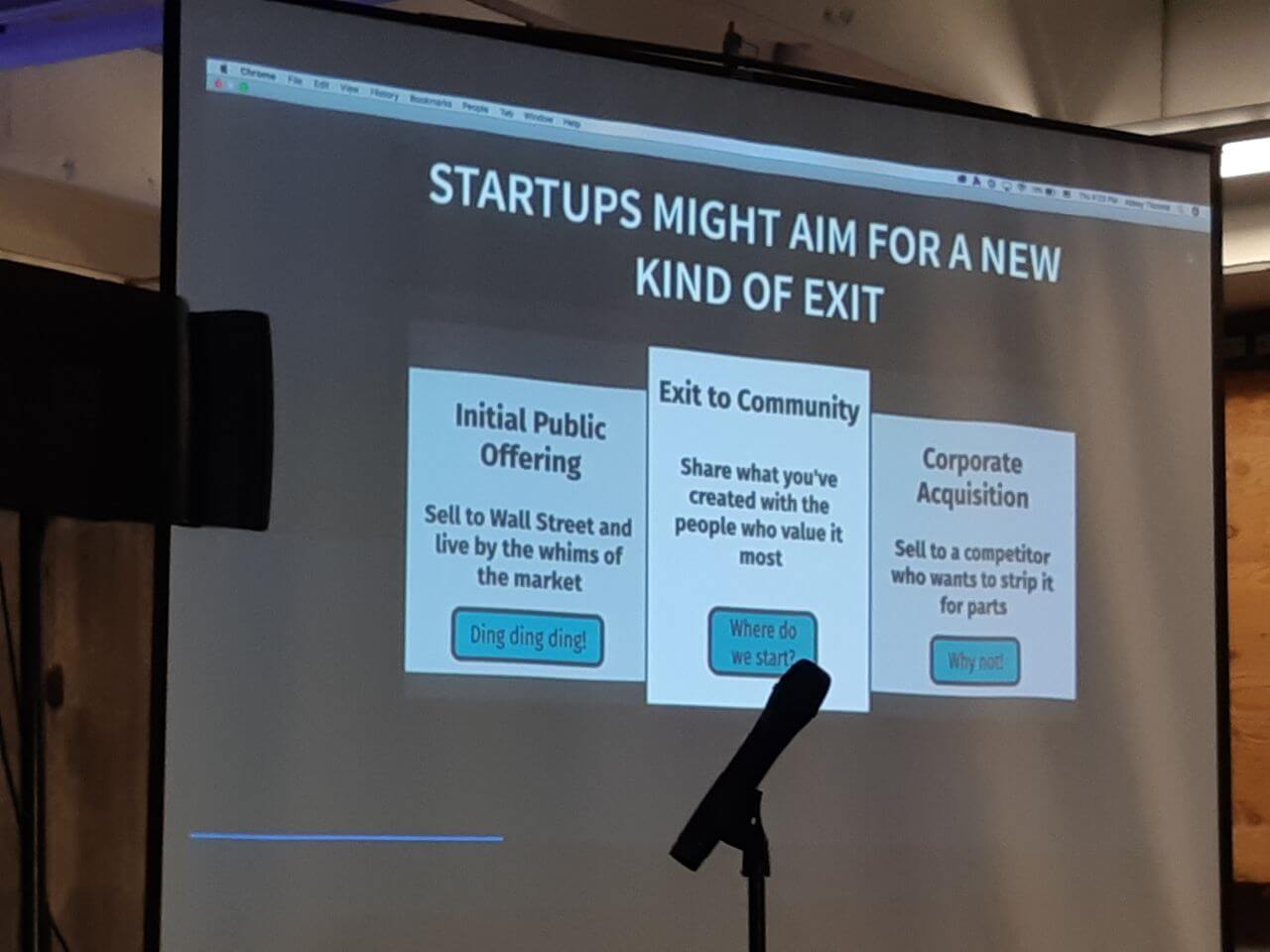
“What if there were an option for a kind of exist to community, where the stakeholders, the participants who really depend on the tool become the owners, the rights holders, the power holders with ownership and governance in the mix,” said Nathan.
For those interested in discovering more, there’s a paper draft, “Conversion to Accountability: Strategies for Multi-Stakeholder Ownership in the Platform Economy,” created by Nathan and Morshed Mannan, which has been made available online.
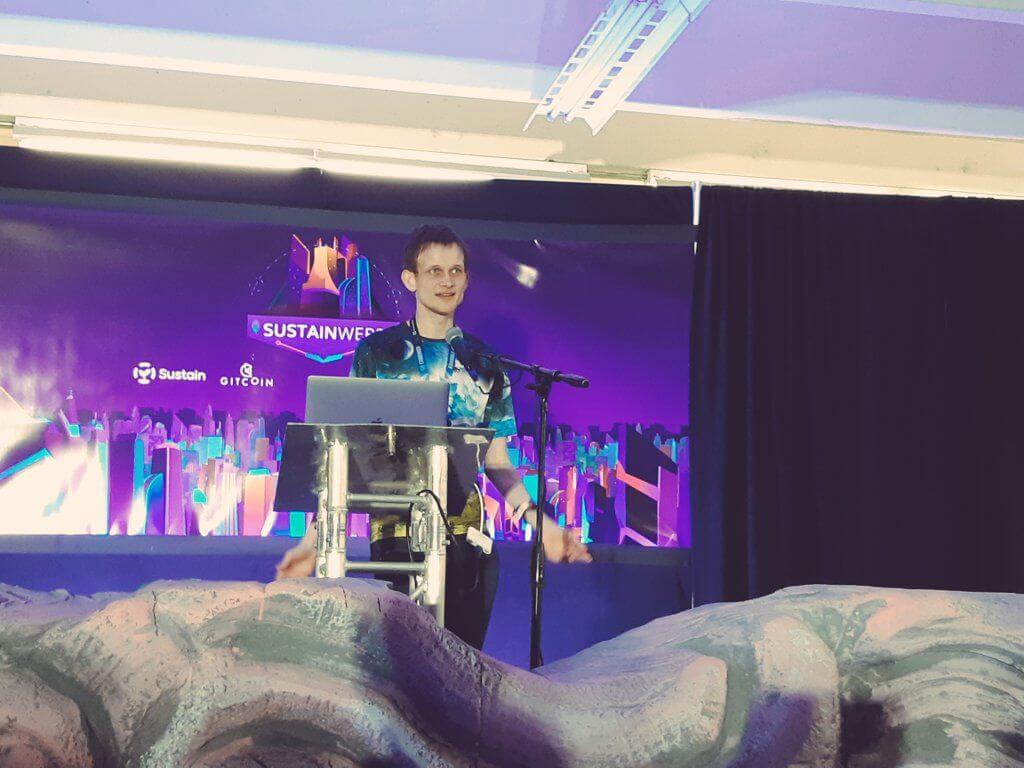
Vitalik Buterin gave a speech entitled, “Putting it all together – Meditations on public goods, sustainability and values,” towards the end of the SustainWeb3 event. Watch his presentation on YouTube: https://youtu.be/wWXdi891b28
In his presentation, Vitalik gave an overview of the right libertarian mindset and its effects on governance, discussed his thoughts on public goods as well as a few trends that are currently happening in the community.
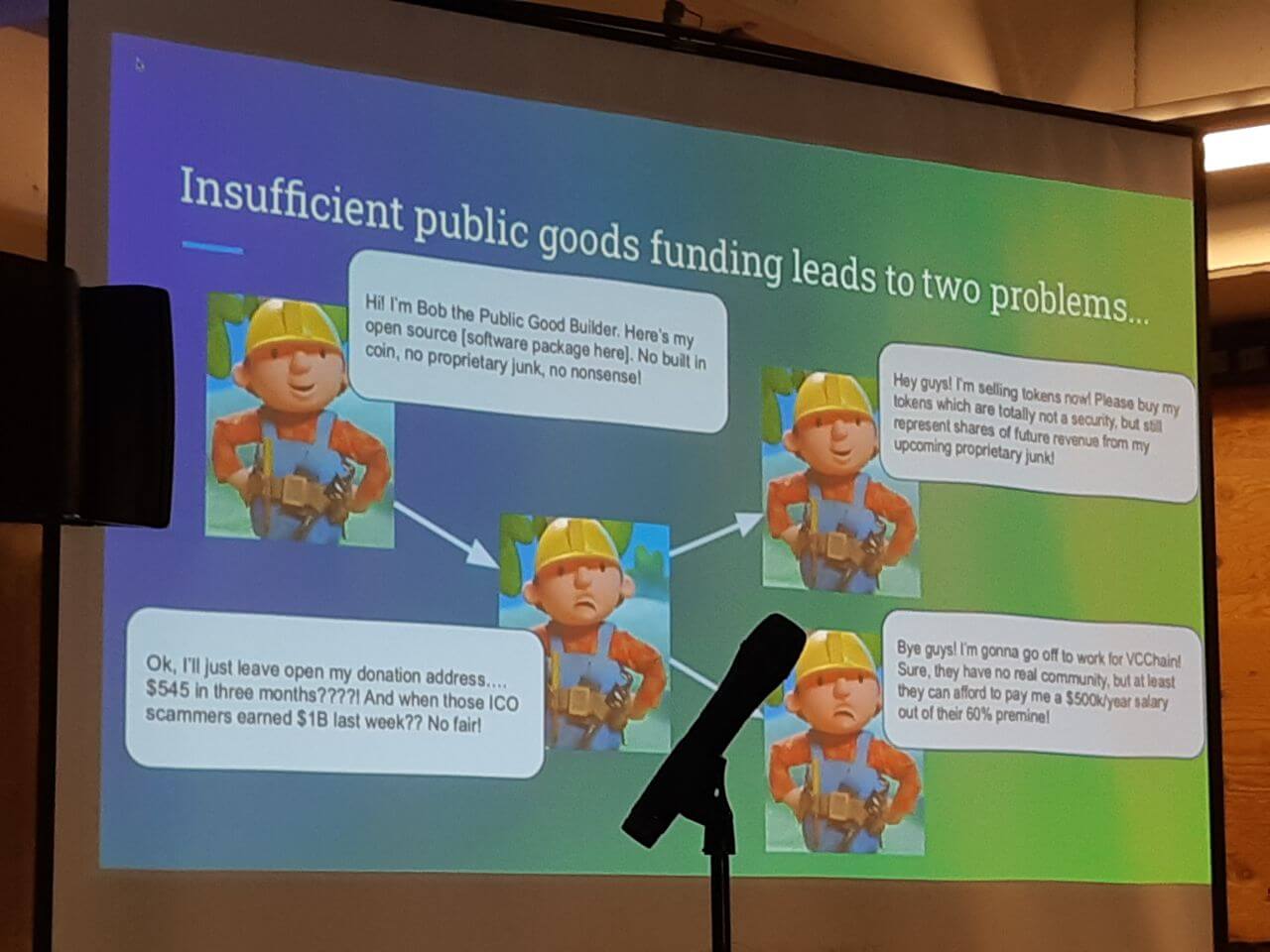
He talked about how insufficient public goods funding could lead to two problems. The first problem it leads to is if there is insufficient resources going explicitly going in to supporting public goods. Then people who might theoretically want to be working on public goods are eventually forced to go work on other projects that have way more resources than they do because there is some party that has some concentrated financial interest that is willing to support them. People are willing to work out of the kindness of their hearts to some extent but there’s a limit.
The second problem is this hint if Bob the Public Good Builder realizes that Bob needs a business model and so Bob says hey guys, I’m selling tokens now, please buy my tokens which are totally not a security but still represent shares a future revenue for my upcoming proprietary junk.
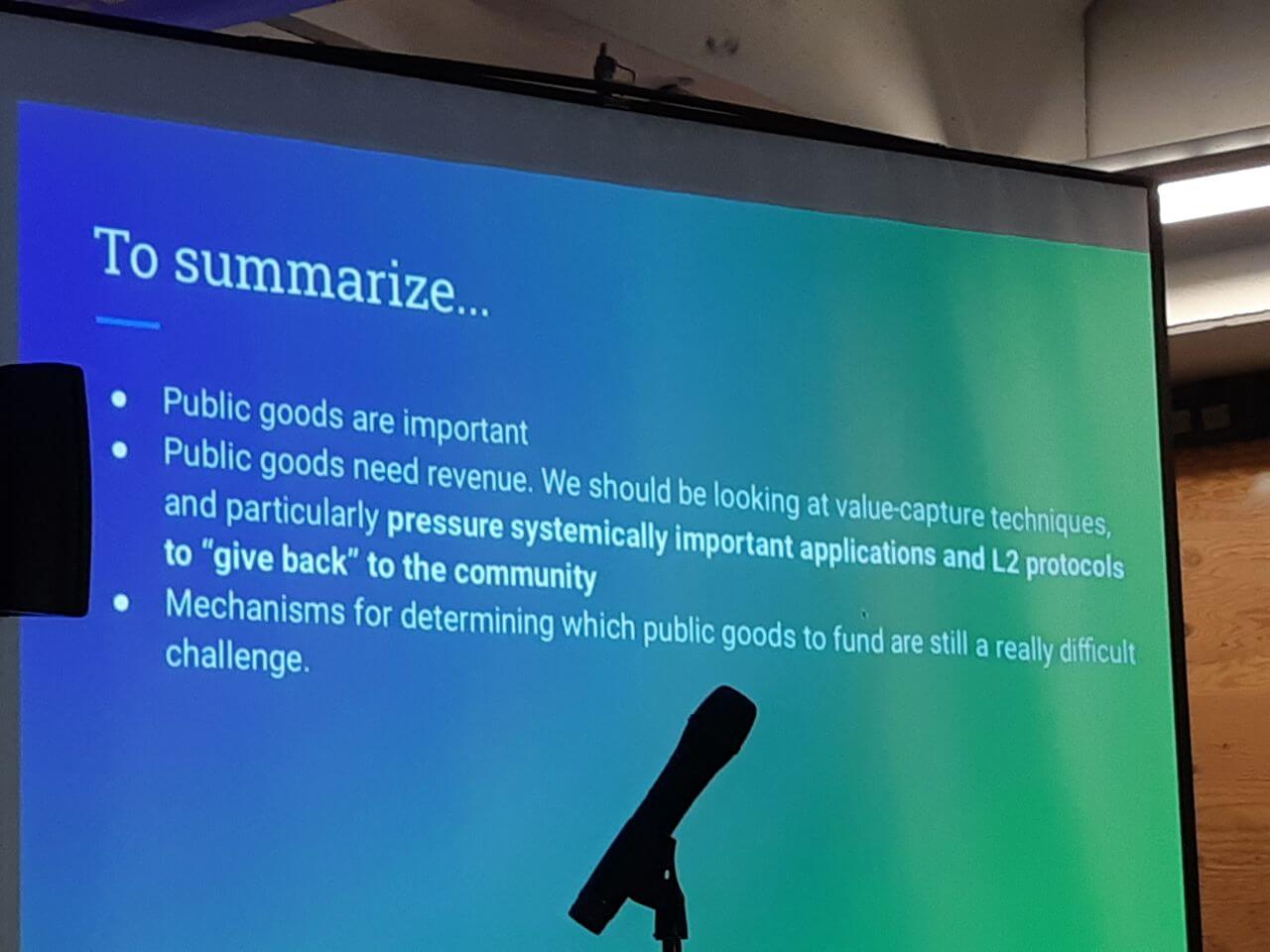
Towards the end of the presentation, Vitalik stressed that the community should be looking at value capture techniques. “We should be looking at ways to get money pumping into public goods funding that’s better than just people providing voluntary donations. The tool that we have is network effects. Any kind of application within the Ethereum ecosystem that has network effects, that’s an application that we should actively pressure to give back to the community in some way. And if they stubbornly refused, then we as a community should coordinate on abandoning them and switching to a nicer alternative,” said Vitalik.
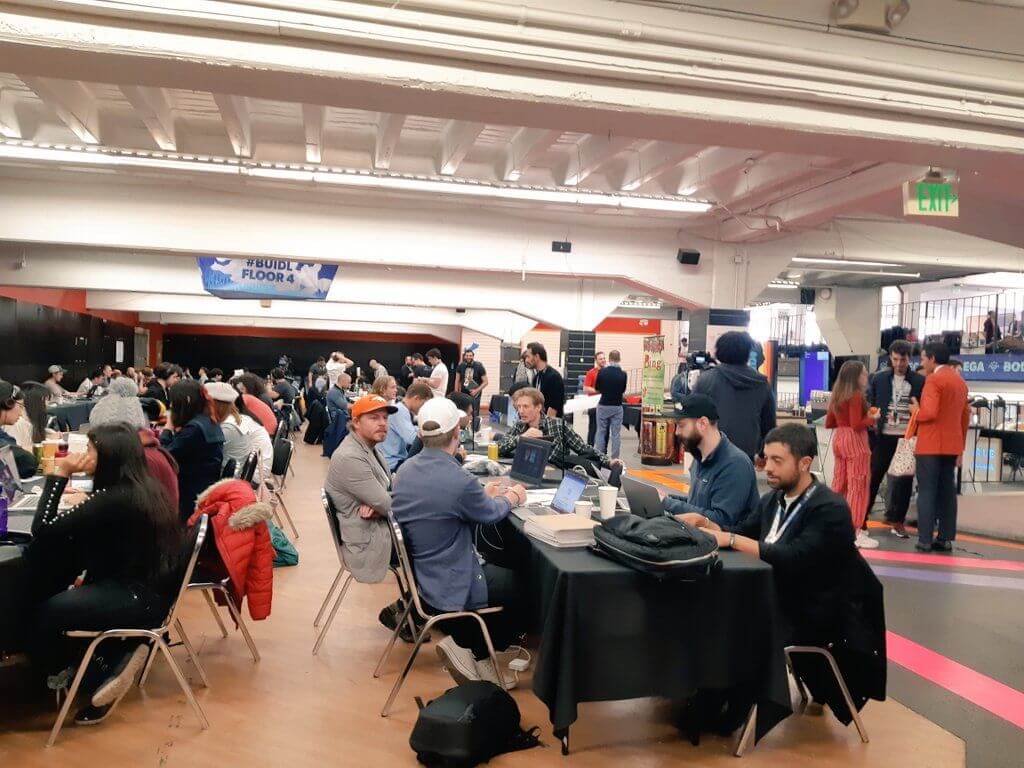
We recently made a demo video where our engineers demonstrated how to use Diode’s Go client do a live video streaming. Check out our GitHub repository, give it a try, and let us know how it turns out for you!
Also, CTO Dominic Letz put out a development update this month in a blog post. Some of the key updates included in the blog post are: we recently launched a MetaMask compatible Prenet Explorer, launched a Web3 gateway that allows proxying traffic directly into the Diode-Mesh-Network without the need to locally install a client, launched a fleet development interface as part of our efforts in pushing forward our Prenet Explorer, as well as deployed a simple Blockchain Name System (BNS) contract on the Diode Prenet.
If you believe in the vast potential of a decentralized web, I invite you to join the Diode Telegram group. Follow our Twitter to get the latest development updates.
